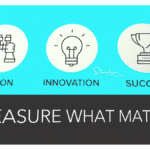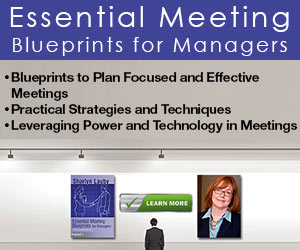We all know that networking is important. And we’re supposed to give, give and give some more in our professional relationships. But what happens when we need something? Like we need one of our connections to help us land a job. That’s what this reader wants to know.
Hi Sharlyn. I read your post ‘It’s not what you know, it’s who you know’ and was wondering if I could ask a question. I have an old friend working at a company that I would give my right (insert body part here) to land a job at. My question is: how do I actually go about leveraging this ‘I know the guy’ situation? Any practical or general advice would be awesome.
So I reached out to a couple friends for their thoughts. Nicole Williams is LinkedIn’s career expert and founder of WORKS by Nicole Williams. John Nykolaiszyn is a fellow South Floridian, super smart HR pro and author of the blog Fast Food HR.
Does “knowing someone” inside the company help a person’s chances of getting hired? Why or why not?

[John] This is one of those classic ‘It Depends’ answers that will require me to approach it from two fronts. The first, knowing someone on the inside may help with increased chances of an interview/conversation. The individual may know the hiring manager directly, may know the recruiter, or someone in HR who they could have a brief conversation with about the individual. This may result in getting a more detailed look at ones skills and abilities or possibly a quick phone or face-to-face interview.
The second area to consider is with respect to the ‘informal’ reference. The hiring manager or someone in HR may reach out quietly to the friend on the inside to have a general conversation about the individual. They may want to just double check how they feel about a particular candidate, corroborate information learned on interviews or get a general ‘gut check’ about the individual and if they’ll fit into the culture.
Should you make this kind of request from anyone? I’m wondering does it matter if you’re close friends or just casual acquaintances.
[Nicole] Of course you should make the request. If you wholeheartedly are passionate about this company and see yourself contributing to their future success – you should ask. You never know if they are looking for new hires but have yet to post the listing. Even if there are no immediate openings…there might be. And your name will be one of the first mentioned. Reconnect with your friend and learn as much as you can about the company. Learn about the executives and the history of the company. Follow their company page on LinkedIn and track their movement. Do they have a new product coming out? The more well-versed and comfortable you are discussing the company the more likely you’ll be seen as a serious candidate as opposed to Joe’s college roommate. Like any other job interview – you need to do your homework.

With casual acquaintances, I like the approach of applying through the correct channels and then sending them a quick personal note to let them know you’ve applied. You can’t hang an expectation of action on the casual acquaintance, you can only inform them. If they’ve got the power to assist you then they should be the one to mention it to you and if action does result, then you should absolutely send the acquaintance a quick ‘thank you’ email.
What’s an appropriate way to contact someone “on the inside” for help getting an interview (or at least getting their resume into a recruiter’s hands)? Can you share one must “do and don’t”?
[John] I think a quick personal email; from your personal email account to let your insider know that you’ve applied to the position is a great ‘do’ recommendation. If they need more info from you then you can reply accordingly, and they could also reach out to let you know some additional information.
A big don’t in my book is to send the request cold or without any prior indication that it’s coming.
Also sending an impersonal note, attaching a copy of your resume and expecting your contact to send it to HR or the hiring manager is just lazy and not the polite thing to do. In fact, if it’s unsolicited, then it may hurt your efforts more than help.
[Nicole] Focus on reconnecting with the connections you already have. Rebuild a rapport by sending them an article you’ve read or a message to say ‘Happy New Year’. It’s important to keep these connections lukewarm in the event you need them later in the year. Don’t flat out ask for a job. Especially if you haven’t talked to this person in years.
The reader didn’t ask this but, what happens if you reach out to a friend to help and they either say “no” or don’t respond? Does this mean they think you’re not a good fit for the job?
[John] I think that there are a bunch of reasons why someone may say no or not respond. I don’t necessarily think that they are implying that you may not be a good fit for the role. They may know some inside information that they can’t share. They may not be comfortable doing it or may feel that it’s a strain on the relationship. I wouldn’t take it personally.
The important thing to remember is that, if they say no, then you need to be polite and thank them for the consideration. Always remember to be polite and diplomatic even if it’s not the answer you wanted to hear.
Remember the situation can turn embarrassing if you press them and ask why they won’t help you out. You may or may not be prepared for the answer and it may put a strain on your friendship.
[Nicole] Maybe that friend missed seeing your message or forgot to respond. This is why you shouldn’t just rely on one connection. You should reach out or make new connections that could potentially open doors for you.
Many thanks to John and Nicole for sharing their experience and expertise. If you want to read more from them (and I know you will) be sure to check out their blogs and you can follow them on Twitter at @CigarSPHR and @TheGirlOnTop. Building relationships take time. Don’t wait until to need something to reach out and connect with people.







HR Mole says
Thanks for this great post, really interesting to hear people’s views on networking and job applications. I think it is so important when applying for jobs even if the person can’t pass on your details to the recruiting manager you can at least find out information about the organisation that can’t be found from their website.
Sharlyn Lauby says
Thanks so much for the comment. You’re right – the information flows both ways.
Cindy Postanco says
It’s great to see how two HR professionals seem to think the same on this fact, even though the way they say it it’s different.
I couldn’t agree more with the importance of referrals when you are either looking for a job, or looking to hire somebody for a position you have open. I know we pay big bucks to any successful hiring we make through our referral system, because we know our people recommend only great people.
So if I may give a piece of advice to your correspondent, I’d say not to hesitate in asking for his/her friend’s help. It might even help the acquaintance get a referral bonus.
Sharlyn Lauby says
Thanks for the comment Cindy. Excellent point about employee referral programs!
Catie Farrow says
This is such an important topic – one that can feel very tricky to someone navigating it for the first time. I’d definitely agree with the other comments – connections internally can not only help a candidate apply, but are also a great source of information even if they don’t have connections to the hiring manager. It’s certainly worth it to reach out to these friends simply for advice, and hopefully, they’ll be willing to pass a resume along to the right people. It can’t hurt either way.
I think it’s also worth noting that a simple Thank You note goes a long way in these situations – even if connections are only able to provide some shortwinded advice, or simple a “no,” a genuine “Thanks” letter is incredibly important. You never know when a position they’re actually able to help out with will open up! And of course, if a connection is able to submit your resume for you, a sincere “Thanks,” as well as following up throughout the process, is one of the most important parts of networking, in my opinion.
Thanks for the insight, Sharlyn!
Sharlyn Lauby says
Hi Catie. Thanks for the comment. Totally agree with your point about closure. It goes a long way for everyone involved.